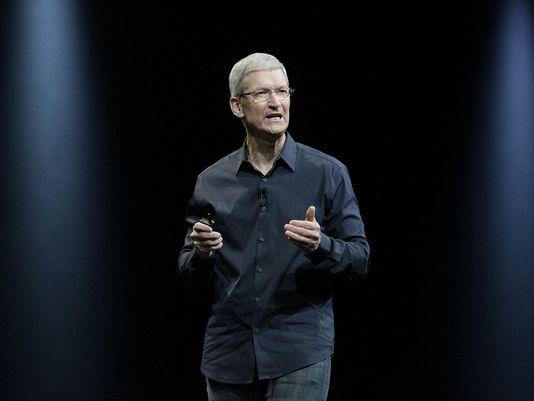Two and a half months after the Dec. 2 San Bernardino terrorist attacks that left 14 victims dead and 22 others injured, the FBI issued a court order requesting cooperation from Apple. The order asks Apple to develop a software that would enable federal investigators to gain access to one of the shooters’ locked iPhones and possibly alert us to future terrorist attacks. Apple has so far refused to collaborate with the FBI, standing by its promise to protect customer privacy. However, in this legal battle that pits privacy against national security, Apple is taking advantage of the situation, using it as a marketing opportunity to appeal to the millions of Americans who value their privacy above all else. Apple should give the FBI access to the iPhone.
The aforementioned software is most likely less complex than whatever most citizens have in mind; Apple simply needs to create a tool to override the function that erases all data on the iPhone after ten failed passcode attempts. It is not unreasonable to expect that Apple can develop such a software, as technologically inclined people (and tech companies) know that even the most secure software is not foolproof in the eyes of its creator. Apple CEO Tim Cook asserted in his Feb. 16 customer letter that the reason Apple will not comply with the court order is not that such a creation would be impossible, but that they consider the software “too dangerous to create.”
Is this software more “dangerous” than potential terrorist attacks that may be prevented later on? The iPhone in question could contain valuable information about the potential relationship that the shooters had to the terrorist group ISIL, as different sources have found contradictory links between the two. The phone could also reveal further plans of attack, as evidence suggests that the shooters were planning a much larger act of terrorism. Although both shooters are dead, there may be plans for a third perpetrator. If that information is on the iPhone, unlocking it could save lives.
A number of those siding with Apple claim that helping to unlock this particular phone would set a dangerous precedent that could potentially allow the government access to anyone’s phone. One needs to keep in mind, though, that this is not just anyone’s iPhone; it is evidence from the pocket of someone who murdered more than a dozen people. Gaining access to a proven terrorist’s iPhone is not the same as being able to seize any individual’s iPhone without a warrant. The shooter offered more than enough probable cause when he committed mass murder, and without probable cause, the government cannot search an individual’s possessions, leaving innocent people out of the picture. Whether or not the FBI chooses to abuse this privilege is beyond the issue at stake here.
Apple has argued that if a safe-cracking tool is created, two major concerns will prevail. First, the tool might get in the wrong hands and be used by hackers to obtain both personal and top-secret information. Second, law enforcement agencies worldwide will request to use the tool to transgress their citizens’ privacy for the sake of national security.
Regarding the first fear, Apple should be able to limit the software to the confines of this specific iPhone. To prevent the software from travelling elsewhere, Apple can terminate it once the shooter’s iPhone has been unlocked. Making such a tool safe would, undeniably, be difficult, but it should not be impossible. As for similar cases in the future, if the FBI issues another court order or has a warrant to search a criminal’s iPhone, then a similar software could be reconstructed, used to obtain evidence, and destroyed again.
The second fear, that breaking into this iPhone in this one case would pave the way for government issued privacy breaches in other countries, is answered by the reasoning that this particular case would set a precedent for only infringing upon the privacy of criminals, not innocent people.
Because Apple’s compliance with the FBI could potentially protect Americans, the company should follow the court order and develop a tool that would allow the FBI to continue its investigation into the terrorist attack. Apple may be one of the largest and most powerful companies the world has seen, but it is not above the law.




